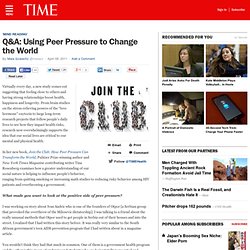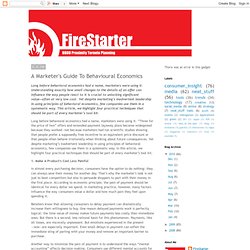

Hooked on Addiction: From Food to Drugs to Internet Porn. America is having an addiction moment.

Media headlines scream daily about new neuroscience findings on porn addiction, Internet addiction, food addiction and plain, old-fashioned drug addiction. As TIME’s Michael Scherer wrote last week, 42 U.S. Senators called on Attorney General Eric Holder to increase obscenity prosecutions for pornography, due in part to fears over sex addiction. There’s even a new online magazine about addiction called The Fix (full disclosure: I write for it).
But what do the recent neuroscience studies actually tell us about addiction? Cocaine, opioids, alcohol, and other drugs subvert, or hijack, [the brain's] pleasure systems, and cause the brain to think a drug high is necessary to survive. But this is actually a bizarre form of circular reasoning. Suggesting that drugs “hijack” these reward systems to produce addiction implies that under normal circumstances — in the pursuit of “healthy” urges like eating and sex — these systems wouldn’t cause addiction. Mind Reading: Using Peer Pressure to Change the World. Virtually every day, a new study comes out suggesting that feeling close to others and having strong relationships boost health, happiness and longevity.

From brain studies on the stress-relieving powers of the “love hormone” oxytocin to large long-term research projects that follow people’s daily lives to see how they impact health risks, research now overwhelmingly supports the idea that our social lives are critical to our mental and physical health. In her new book, Join the Club: How Peer Pressure Can Transform the World, Pulitzer Prize-winning author and New York Times Magazine contributing writer Tina Rosenberg examines how a greater understanding of our social nature is helping to influence people’s behavior, ranging from quitting smoking or increasing math studies to reducing risky behavior among HIV patients and overthrowing a government.
What made you want to look at the positive side of peer pressure? You wouldn’t think they had that much in common. Mind Reading: The Researchers Who Analyzed All the Porn on the Internet. Searching all the porn on the Internet might not seem like the most scientifically productive activity, but computational neuroscientists Ogi Ogas and Sai Gaddam did it anyway.

For their new book, A Billion Wicked Thoughts: What the World’s Largest Experiment Reveals about Human Desire, Ogas and Gaddam analyzed the results of 400 million online searches for porn and uncovered some startling insights into what men and women may really want from each other — at least sexually. I spoke recently with Ogas.
Why did you decide to analyze online porn searches? I’m a computational neuroscientist. I view the mind as software. So is “Rule 34″ true — that if you can imagine it, there’s porn of it? When we first started, Rule 34 was almost a guiding idea. Even though you can find an instance of any kind of porn you can imagine, people search for and spend money and time on 20 sexual interests, which account for 80% of all porn. Why are cheating wives so popular? I wouldn’t say there’s a trend. Print Your Own Version of SCVNGR's Game Mechanics Flash Cards. A Marketer's Guide To Behavioural Economics.
Long before behavioral economics had a name, marketers were using it.

Understanding exactly how small changes to the details of an offer can influence the way people react to it is crucial to unlocking significant value—often at very low cost. Yet despite marketing’s inadvertent leadership in using principles of behavioral economics, few companies use them in a systematic way. This article, we highlight four practical techniques that should be part of every marketer’s tool kit. Long before behavioral economics had a name, marketers were using it. The Behavior Wizard. The Behavior Wizard.